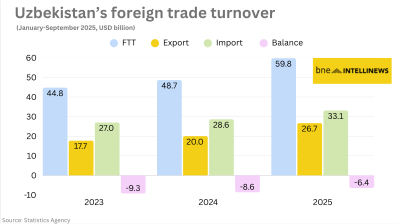It's predicted that 3bn people will live in zones that have been made uninhabitable (black areas) by 2070, say scientists.
A third of the world's population could live in a climate similar to the Sahara in just 50 years, according to a recent study published in PNAS in 2020. That means 3.5bn people could live with average temperatures in the mid-80s, “outside of humanity's comfort zone” by 2070.
In under 50 years large swaths of norther South America, central Africa, India and northern Australia will become too hot to allow human life. And the acceleration of global warming suggests this deadline is being moved forward.
Once these regions become too hot for human life an estimated 3bn people will be forced to abandon their homes in the largest migration the world has ever seen, which will play out over the next three decades.
Closer to home, and the drought levels across the Mediterranean in Spain and Italy and elsewhere are already alarming. Last year was the hottest on record and with sea temperatures already smashing last year’s records this year is set to be worse. While Europe will not become uninhabitable, the temperatures in the coming decades will become uncomfortably high.
“If this region gets the summer we expect with record global temperatures, these drought conditions will become even more severe,” says climatologist Peter Dynes.

And in a sign of things to come, even if Europe remains habitable in thirty years’ time, the economic consequences of global warming will have a severe impact on the quality of life and threaten Europe’s food security. The cost of olive oil in EU countries this January has already soared by 50% year on year thanks to the droughts sweeping the region.
The highest annual price increase was recorded in Portugal with a 69% gain. It was followed by Greece with 67% and Spain with 63%. The price increase was due to a poor olive harvest in much of the Mediterranean region, caused by extremely dry weather.
Data

Turkey's central bank remains cautious, delivers 100bp rate cut
Decision comes on eve of next hearing in trial that could dislodge leadership of opposition CHP party.

Polish retail sales return to solid growth in September
Polish retail sales grew 6.4% year on year in constant prices in September, picking up from a 3.1% y/y rise in August, the statistics office GUS said.

Uzbekistan’s nine-month foreign trade nears $60bn
Export growth of 33% and import expansion of 16% y/y produce $6.4bn deficit.

Hungary’s central bank leaves rates unchanged
National Bank of Hungary expects inflation to fall back into the tolerance band by early 2026, with the 3% target sustainably achievable in early 2027 under the current strict policy settings.




